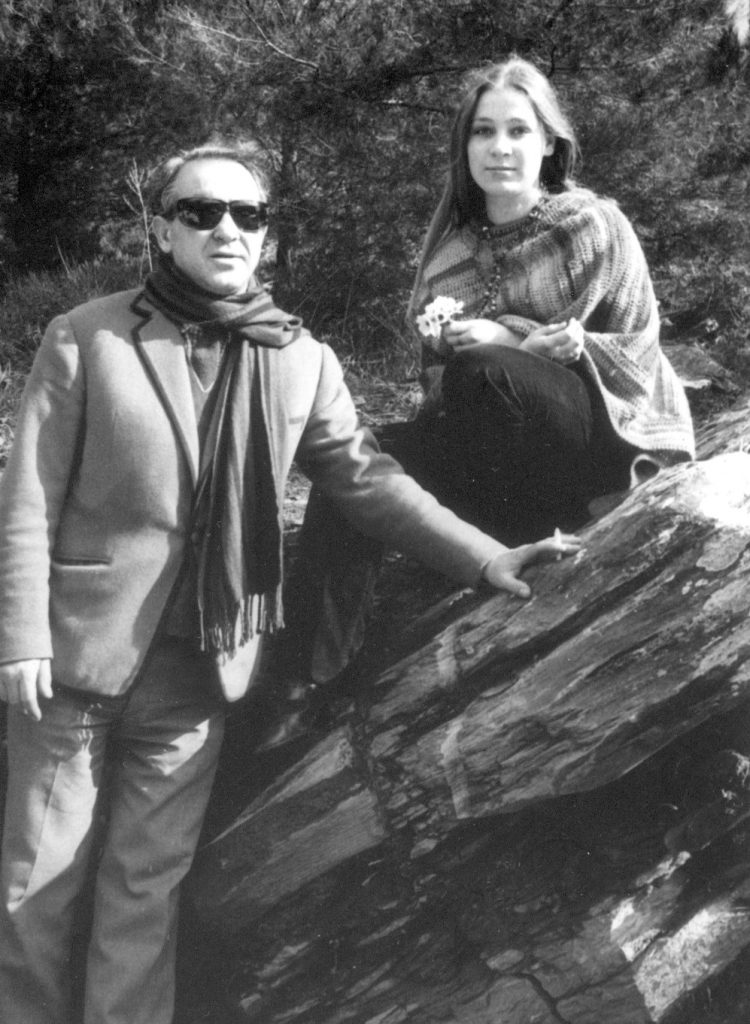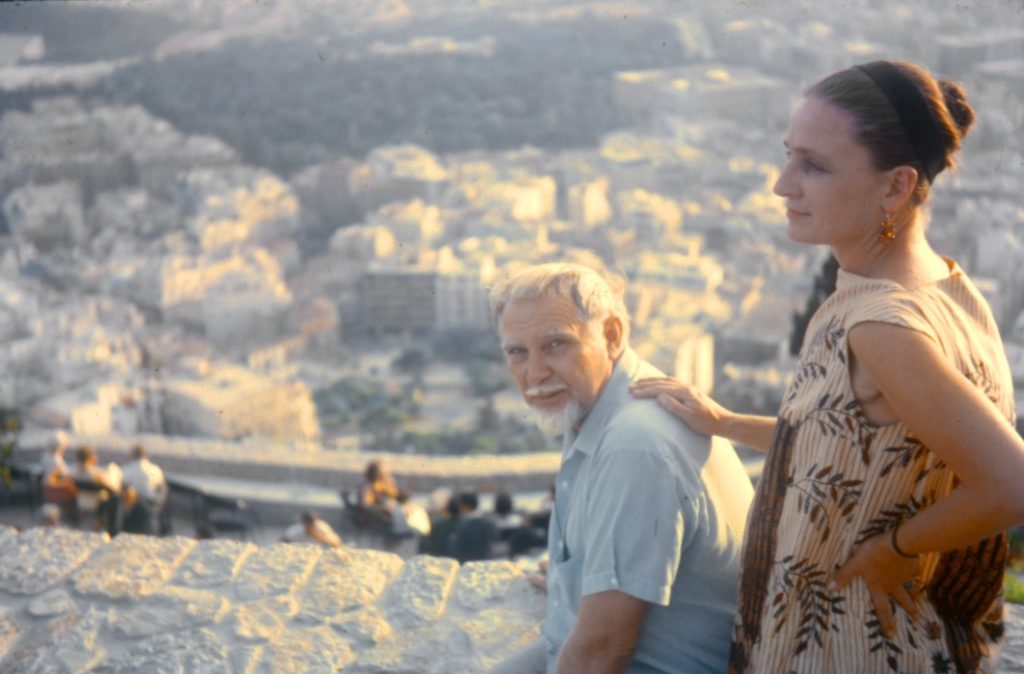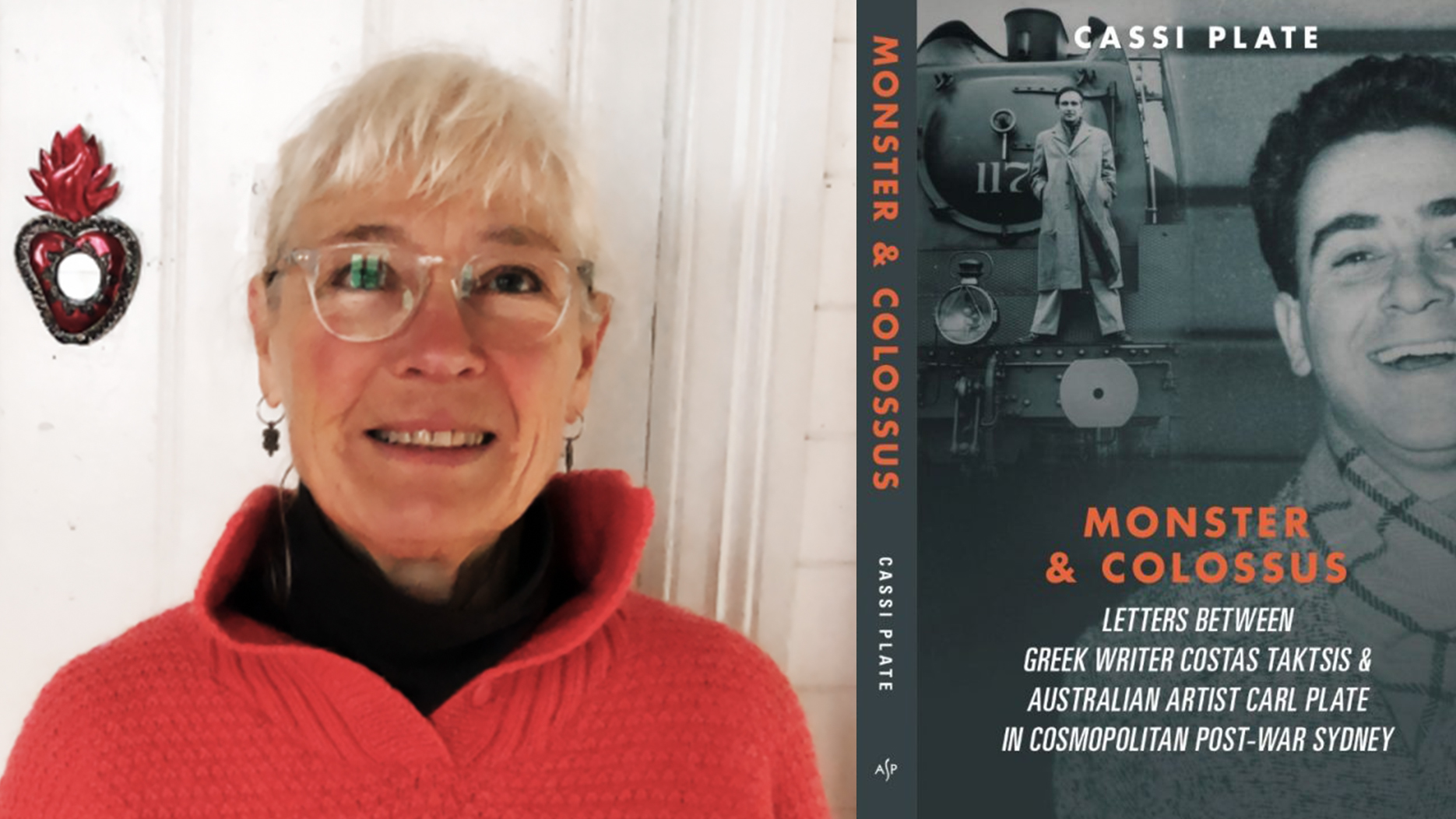The Greek Australian Writer’s Festival by the Greek Festival of Sydney is set to go ahead at the Prince Henry Centre in Little Bay, Sydney on Sunday, June 12 from 10 am to 5 pm.
Among the writers who will be showcased on the day is Cassi Plate with her novel Monster and Colossus. The novel is based on letters between Costas Taktsis, one of Greece’s most important post-war writers, and Australian painter, gallerist and close friend, Carl Plate – Cassi’s father.
To find out more, The Greek Herald spoke with Cassi and this is what she had to say.
How did Costas Taktsis and your father become life-long friends?
Our family’s enduring friendship with Costas Taktsis began with my maternal grandmother Alleyne Clarice Zander, a Melbourne-born, London-based publicist, writer and artist. Clarice Zander curated the first exhibition of modern art in Australia. She nurtured artistic talent and formed an immediate friendship with the talented young Greek poet when he first arrived in London in 1954. He dedicated his last volume of poetry, Café Byzantium (1956) to Clarice Zander.
Against Clarice’s advice, Costas emigrated to Australia in 1957, meeting my parents, Carl and Jocelyn Plate. The friendship formed between an older Australian modernist artist, Carl Plate, and the young Greek poet and writer, Costas Taktsis, remained significant to both men throughout their lives.

Why do you think it is important to share their letters?
The letters between them, including those few from Clarice and my mother Jocelyn, were virtually the only ones kept by both Carl and Costas. They formed a life-long conversation, discussing their respective art forms, the events in their lives and the cultural and political world around them.
What is the origins of the names ‘Monster’ and ‘Colossus’?
When I began researching and writing Monster & Colossus, I could find no published example of letters written across decades, with the exception of a few very famous men.
In a letter to Carl, while feted after the publication of his still-famous book, The Third Wedding was largely written in Australia, Costas describes himself as a ‘Sacred Monster.’
In tandem with the success of his book, it became a torturous period in Costas’ life as famous Greek film directors vied for the rights to his novel. By this time, as I write in my book, Costas had travelled and worked extensively in the USA. His book’s many awards had taken him on tours throughout Europe. He was regularly interviewed and quoted in the Greek press.
Earlier, in a letter written from an Australian gaol, Costas referred to his artist friend as ‘The Colossus of Woronora’ – the name of the small bush suburb where the Plate family lived. Costas Taktsis had been arrested and gaoled by Sydney’s notorious Vice Squad, essentially due to his sexual orientation; his so-called crimes now no longer against the law.
Led by my parents, Carl and Jocelyn Plate, many of the wide circle of friends that Costas had made during his eight years in Australia – the years in which he wrote The Third Wedding – contributed funds to enable Costas to leave Australia, rather than serve a gaol sentence. Despite many attempts, he was never allowed to return to Australia.

What was the most surprising thing you discovered in producing this work?
Researching and writing Monster and Colossus, I came to understand the importance of Costas Taktsis to our family and why we missed him so much. He opened up the nuclear family and was loved by us all.
Writing this book enabled me to see why we were happiest together when he was part of our family.
For more information on the Greek Australian Writer’s Festival, click here.

